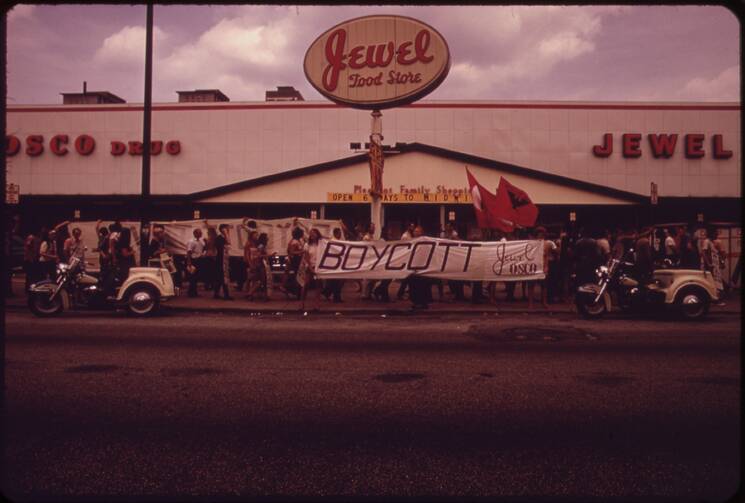When asked if consumer boycotts help to hold companies accountable, 83 percent of respondents said yes. Eighty-five percent said they had participated in a boycott themselves.
“In the world of consumer products and for-profit corporations,” wrote Kathy Wright of Loretto, Ky., “money talks.”
This sentiment was echoed by scores of readers, who said the “bottom line matters” and that boycotts and strikes are necessary to curb corporate irresponsibility. Asked why they have boycotted companies, some respondents—34 percent—said they have protested companies’ treatment of their employees.
“In the world of consumer products and for-profit corporations, money talks.”
A number of readers said they participated in the Delano Grape Strike of the 1960s and 1970s to support farmworkers in California. Sandra Farrell of Philadelphia, Pa., was one of those participants. “I do not wish to give my money to companies who use their outsized power to promote ideas and actions that violate my beliefs as a human being, Catholic and union member,” she wrote.
Readers offered a few caveats to their support for boycotts. Multiple readers wrote that a boycott will only work if it can generate widespread publicity.
Asked specifically about labor strikes, readers were generally supportive but also qualified their support. Gerry Kelly of Ottawa, Canada, noted that if strikes are to effect real change, they must be “sustained.” Theresa Raymond of Abington, Mass., was more reticent about striking. “I was a teacher and a member of a union, but we never had reason to strike,” she said. “I would have found it difficult to participate and disrupt the students’ education.”









